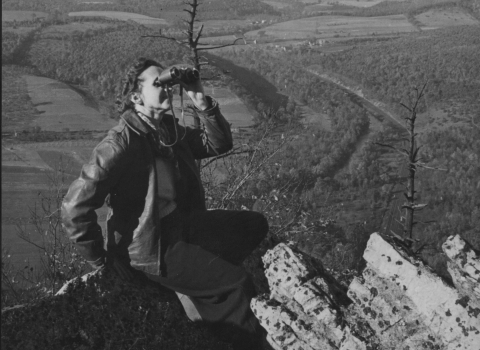If you think you've found an orphaned or injured wild animal, what should you do? We at the U.S. Fish and Wildlife Service know that it’s natural to want to help. Here are a few things you should know to keep the animal safe and avoid breaking the law.
Most states require permits or licenses, training and approved facilities to rehabilitate wildlife and some species, including most birds, require federal permits as well. For the safety of the animal, yourself and your family, always call a professional.
Survey the scene
Stop and notice your surroundings. Look for a cause of injury. Do you see any fallen nests on the ground? Was there a recent wind or strong storm that moved through? Most of the time, the best thing to do is to leave the animal alone, but you’ll know a wild animal needs help if it has a visible broken limb, is bleeding, shivering or has a deceased parent nearby.
Baby birds: Nestlings and fledglings
If you find a baby bird, it likely does not need your help unless it is featherless or has its eyes closed. These birds are nestlings and aren’t ready to leave the nest yet. If you can locate the nest nearby, the best thing to do is simply place the nestling back in the nest. If you cannot locate the nest, leave the nestling where you found it or move it to a shaded area. The parents will come back. Don’t worry, your scent won’t deter the parents.
As birds get bigger, they outgrow the nest and need room to move around, flap their wings and learn to fly. These more developed birds are fledglings and they can easily be identified by their more developed feathers. They can hop and flutter on their own. Fledglings don’t need help – their parents are nearby and still caring for them. Be sure to give them plenty of space.
Finding a licensed rehabilitator
If an animal truly needs help, you’ll need to find a licensed wildlife rehabilitator. Finding a location that can handle the species you’ve found is key. Always call ahead and make arrangements before transporting an animal.
Many state conservation agencies keep a list of licensed rehabilitators on their websites. Try doing a web search for “wildlife rehabilitator near me” and you should find some resources. If you’re specifically looking for a bird rehabilitator, you can access a map of bird rehabilitator locations. Keep in mind that there are likely additional rehabilitators in your area that aren’t licensed for birds.
Thank you for caring about the wildlife in your community. They’re your neighbors too and it’s great that you want to be prepared to help them in their time of need. Remember to observe wildlife from a safe distance. If a young animal isn’t visibly injured, its parents are likely nearby and still caring for it. Be sure to give young animals plenty of space to avoid spooking the parents. If you're watching wildlife remotely over a wildlife cam and think you've seen an incident involving wildlife, please contact a professional with your local state agency and find a wildlife rehabilitator in the link above.







